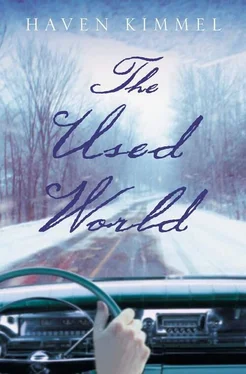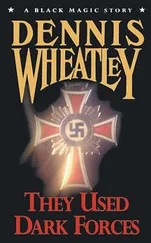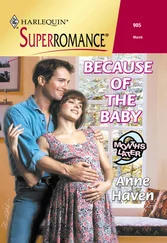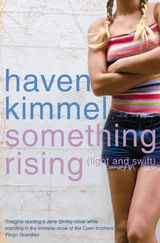Once finished, Rebekah stood, told Claudia she was going to shut down the lights in the back, check the doors. Before her stretched the whole construction, 117 yards long. Rebekah couldn’t see the end from where she stood. The front half was cinder block, rectangular—it had been a tractor tire store thirty-five years earlier—and the back half, which Hazel had added, was a tacked-on pole barn, ugly as sin. The floor was poured concrete, rough finished and unpainted, and the cold radiated up through it and right into Rebekah’s shoes. The walls were corrugated metal. The ceiling soared, making it difficult to heat, so Hazel had installed two twelve-foot industrial fans originally designed for the corporate-owned pig operations out in the county.
She started in the far left aisle, wandering as if she were checking the stock. Hazel and Claudia didn’t seem troubled by what bothered Rebekah the most: these were objects—yes—but they were also lost lives, whole families. They weren’t the dead but they stood for the dead, somehow. Here, in the very first booth, #14, was a four-poster bed made of beautiful aged maple, and right in the center of one of the posts was a shiny, hand-shaped groove, as if a woman had held the post right there as she swung around the footboard and into bed, night after night for decades. Rebekah hurried by booth #15, with its cherry dining room table, its chandelier and vintage landscapes, because #15, rented by the Merrills, also contained a collection of leather suitcases. Inside one she’d found an old rain hat and a note on yellowed paper that reminded: January 7 11:00 mother to Doctor. Now she could hardly look at #15, the suitcases especially. Everything stung her, everything Peter had touched, everything that bore the slightest mark of him.
Toward the middle of the building, the displays became more manly: #16 was primarily unmarked, narrow-necked bottles caked with dirt, and #17 was preserved wrought iron—tools and frying pans, with some cracked butter churns on the floor. The two parts of the building were connected by a short hallway (Hazel called it a breezeway), lined with cheap landscapes tacked up on fake-wood paneling. As far as Rebekah could tell, none of these paintings or prints had ever sold—even the frames weren’t worth anything. The hallway was narrow, then opened up into the massiveness of the back. How had it happened, Rebekah wondered, that a structure so displeasing, so prefabricated and out of scale, could feel so wonderful? It was wonderful. The slight breeze from the industrial fans, even the deep thrum of their motors—a sound so insistent Rebekah could feel it in her stomach—daily pulled Rebekah in. There, stretched before her, more than fifty yards of individual rooms established by Peg-Board walls six feet tall, each room filled with treasure impossible to predict. One booth, the Childless Nursery, contained nothing but wooden toys and rocking horses, the kind covered with real horsehide, with horses’ tails and cold glass eyes cracked and cloudy with age. Sometimes when she looked in this booth she imagined not the children who’d owned the toys, but further back: the horses themselves, whose hides now covered the wood frames and stuffing. She couldn’t see them whole, just the chuffing of breath on a winter morning, a flank, the shuddering of a muscle under skin.
There was a booth with a baby crib, a carriage, threadbare quilts, an old print of the Tunnel Angel, the guardian who presses her finger against the lips of the unborn and whispers, Don’t tell what you know. It was the very end of the building that Rebekah loved best. From the breezeway to the back were two long aisles—Rebekah thought of them as vertical—and against the back wall Hazel had set up a horizontal display. Everything here belonged to Hazel. It began against the west wall with Your Grandmother’s Parlor: an oval rag rug, its colors dimmed, surrounded by a plunky Baldwin piano, a Victrola, a radio in a mahogany cabinet, a nubbly red sofa with wooden arms and feet. On a low table was a green metal address book with the alphabet on the front—you pulled a metal tab to the letter you needed and pushed a bar at the bottom and the book sprang open—and a heavy black telephone from the 1940s, a number still visible on the dial: LS624.
Rebekah dusted the Victrola with the sleeve of her white cotton shirt, adjusted the dial of the radio, picked a piece of string off the sofa. At the telephone table she scrolled to the letter S but didn’t push the bar, rested her hand on the receiver of the phone. It was cold like metal, made of Bakelite, a heavy, nearly indestructible thing. She knew the phone worked, because Hazel had tried it with an adapter. The ringer was broken, but the phone worked. Rebekah had been circling it for three years now, waiting for someone to buy it, hoping they never would, because she believed that someday she’d pick up this phone and call the past. She’d call her own childhood, ask to speak to Rebekah, the bright-haired girl in Pentecostal dresses. She’d issue warnings, some mundane ( Don’t turn your back on the Hoopers’ yellow dog ), some of grave importance ( Don’t ever get in a car with Wiley Crocker ). Was there a way to call her mother, back when her mother was young? Or someone even farther away, a boy who’d just enlisted against his parents’ wishes, a young housewife confiding in her sister?
Hazel’s things were really more beautiful than anyone else’s, but she never made much of it, didn’t carry around catalogs or talk much business with the Cronies. She just went to auctions, answered ads in the paper, came to work with treasure she’d paid almost nothing for. Her trick was to choose the stormy Saturdays—rain or sleet will drive a crowd away—and stay at the auction until the end, when the prize pieces had been saved back but there was no one there to bid on them. Hazel was a businesswoman, Rebekah knew, but still this pained her, the way Hazel moved around Hopwood County like a shark. It didn’t take going to many auctions to see what the truth was: each one was an occasion of sorrow. Either a parent had died, or a spouse who left no insurance. One way or another a life had been foreclosed on, and whatever was earned at the auction would go toward a debt that would never be paid. And there was Hazel, circling somebody’s heirloom china and linens, or a handheld drill with a man’s thumbprint permanently engraved, trying to figure out how to get it cheap and sell it high.
After the Parlor was Rebekah’s favorite place of all and her domain: the Used World Costume Shop and Fantasy Dressing Room.
Of all the things Rebekah had hidden in her years in the Prophetic Mission Church—the doubt at which she didn’t dare glance; the sense that the church was a screen between herself and everything she wanted to experience unmediated—there had been no secret as potent as what she kept in her closet. Forced to wear, every day, long denim skirts with white tennis shoes, white blouses or sweaters, and in full knowledge that the slightest violation of the dress code was a sin against God Himself, Rebekah had assembled—slowly, over the years—her own line of clothing. She had begun with items left in the lost-and-found at church, and then, when she could drive, by combing rummage sales for certain fabrics and rare buttons. Her first dress violated every precept of Pentecostalism’s radical edge: the top of the dress was a girl’s old blue jean jacket, darted beneath the breasts. Rebekah had removed the collar and the sleeves at the three-quarters length, replacing them with rabbit fur from another, moth-eaten jacket. The skirt was yards and yards of pale peach parachute silk lined with white organza, calf-length, 1950s style. Although she had modeled it on herself, Rebekah didn’t want to wear the dress. She wanted to make it, and to know it existed; that was all.
Читать дальше












